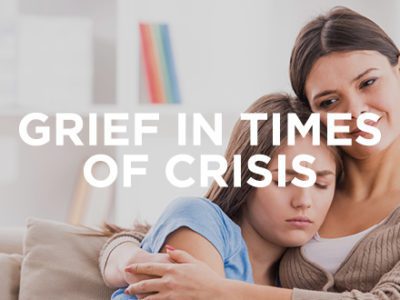Today, we welcome guest blogger Linda Ranson Jacobs, DC4K Creator and Ambassador, who shares great wisdom on helping kids and families in crisis.
To a child a crisis is a crisis is a crisis. It makes no difference the cause of the crisis or what the crisis is. To a child it becomes a world turned upside down where everything feels unsafe, out of control and confusing. What does make a difference is the reaction, interaction, care and attention of the adults surrounding the child.
crisis is a crisis is a crisis. It makes no difference the cause of the crisis or what the crisis is. To a child it becomes a world turned upside down where everything feels unsafe, out of control and confusing. What does make a difference is the reaction, interaction, care and attention of the adults surrounding the child.
When the trauma is very large, like natural disaster, a school shooting or other events that get national attention on TV expect the impact to be widespread and long lasting. When the trauma is individual like a death of someone close or a divorce, the impact is still devastating to the individuals involved and many times it is longer lasting.
We have heard for years that children are resilient, “Oh your kids will get over it. Children are resilient.” What we now know through research is that children are resilient when they have a support system surrounding them. When that support system can’t be the family or extended family, the church family needs to be available. This is true for the death of a loved one, for the divorcing family and for exposure to tragic events in the community or nationally.
Children’s emotional reaction to a crisis depends on their developmental level and on their experience with the people involved. Here are a few universal reactions:
- Increased demands for attention
- Isolation
- Scared fearful/anxious
- Overactive/silliness
- Clingy, overly dependent on the adults around them
- Attempt to order world
- Crying, withdrawal
- Regression (Baby talk, toileting, need to sleep with toys or blankets given up long ago)
- Quietness or lack of emotion
- Complaint of pain (They may hurt physically with stomach aches; headaches, etc.)
- Difficulty in concentration/focus
For grieving children, they will take breaks from the grieving process. That’s why you see little children running and playing at the gravesite after a funeral. Children are children and they have a need to play and make things feel normal.
Here are some tips to give parents when there is a community tragedy in their area.
- Do not talk to other adults about the tragedy in front of your children. Children don’t understand speculation.
- Try to keep yourself calm. Kids WILL pick up on your anxieties. Children need to know and feel they are safe.
- Parents please do not hug your child fiercely every time you see them. They may not fully comprehend all that has happened; however, they will pick up on your fretfulness.
- At a calm moment sit down with your children and ask them what they know about the event. Ask them what they want to know. Explain things in as calm a voice as you can.
- Don’t lie to your children. When they ask you why this happened, tell them you don’t know. If they ask why God would allow this to happen, tell them God did not want this to happen and He wants them to be safe. Sometimes bad people do bad things.
- Ask your children to pray with you for the families who were hurt or died (depending on the age of your child). Continue to pray for people involved in the event for the next few days and weeks.
- Pull your children up on your lap and tell your children they are safe. You can only guarantee your child’s safety in the moment and for now that is what they need.
- Allow children to play through various situations. Even 9, 10 and 11 year old kids will pull out the army men and other characters and play through their stress and fears. Stay on the sidelines, listen and observe. Just let them play through without interruptions. Bath time is another time kids will play through frustrations.
- Lastly turn off the TV. I can’t say this loud enough TURN OFF THE TV. Younger children can’t tell the difference in reality and non-reality.
Most of all children in crisis need the adults around them to empathize with them. Children need your empathy not your pity. They need compassion and understanding.
Dr. Bruce Perry in the book “Born to Love” says,
Empathy has been eroding due to the rapid changes in our society that have become measurable over the last five years.
All in all, we have fewer daily opportunities to connect face-to face in shorter amounts of time with smaller numbers of people.
Jesus brought empathy into our world. He understood pain and heartache and He felt what the people felt.
In church environments simply being a listening ear can be very helpful. Children in crisis need to tell their stories. It might be through art, journaling, music, a game or simply just talking one on one.
When you reach out to families in crisis, you may be the only Jesus’ hands these children feel. You may be the only one that brings God’s word to them. You may be the comforter to them and show them the comfort of the Father.
“If one of you says to him, ‘Go I wish you well; keep warm and well fed,’ but does nothing about his physical needs, what good is it?” James 2:16 (NIV)


EXCELLENT article for anyone dealing with children in crisis when a tragedy occurs.